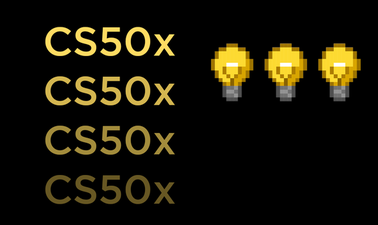


Computer Science for Game Development


The video games of the 1970s and 1980s have never lost their appeal. Pong, Super Mario Bros., The Legend of Zelda — these games defined a generation and set the stage for the massive billion-dollar video game industry of today. Even among the current blockbuster action-adventure titles, retro indie games play an important role, but how are these games made? What principles do you need to master to become a game designer and create the next hit title?
Read more
The video games of the 1970s and 1980s have never lost their appeal. Pong, Super Mario Bros., The Legend of Zelda — these games defined a generation and set the stage for the massive billion-dollar video game industry of today. Even among the current blockbuster action-adventure titles, retro indie games play an important role, but how are these games made? What principles do you need to master to become a game designer and create the next hit title?
The video games of the 1970s and 1980s have never lost their appeal. Pong, Super Mario Bros., The Legend of Zelda — these games defined a generation and set the stage for the massive billion-dollar video game industry of today. Even among the current blockbuster action-adventure titles, retro indie games play an important role, but how are these games made? What principles do you need to master to become a game designer and create the next hit title?
These courses will lead you through the most popular undergraduate course at Harvard, CS50, an Introduction to Computer Science. The first course will introduce you to common programming languages, providing a strong foundation to build the skills necessary to design and develop your own game. The second course will introduce you to the fundamentals of game programming itself.
You’ll explore the design of classic games — and newer titles like Angry Birds and Portal — in a quest to understand how video games are built. Through lectures and hands-on projects, you’ll explore the principles of 2D and 3D computer graphics, animation, sound, and collision detection. You’ll learn how to use frameworks like Unity and LÖVE 2D, as well as languages like Lua and C#. Join now to program your own games and gain a thorough understanding of game design and development.
What you'll learn
- A broad and robust understanding of computer science, programming, and software development
- Concepts like abstraction, algorithms, data structures, encapsulation, resource management, security, software engineering, and web development
- Familiarity in a number of languages, including C, Python, JavaScript, SQL, CSS, and HTML
- Principles of 2D and 3D graphics, animation, sound, and collision detection
- Unity and LÖVE 2D, plus Lua and C#
- The fundamentals of game design and development
What's inside
One course
CS50's Introduction to Game Development
(90 hours)
CS50's Introduction to Game Development
(90 hours)Save this collection
OpenCourser helps millions of learners each year. People visit us to learn workspace skills, ace their exams, and nurture their curiosity.
Our extensive catalog contains over 50,000 courses and twice as many books. Browse by search, by topic, or even by career interests. We'll match you to the right resources quickly.
Find this site helpful? Tell a friend about us.
We're supported by our community of learners. When you purchase or subscribe to courses and programs or purchase books, we may earn a commission from our partners.
Your purchases help us maintain our catalog and keep our servers humming without ads.
Thank you for supporting OpenCourser.

